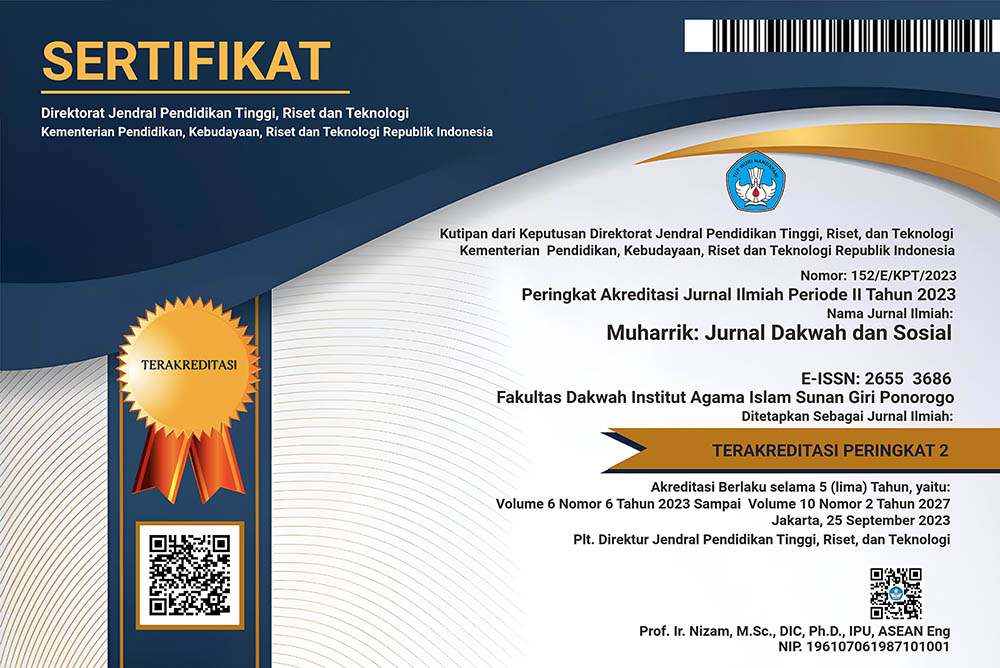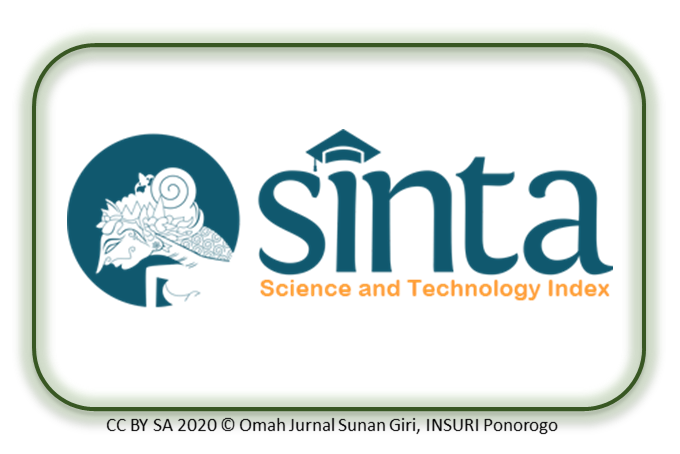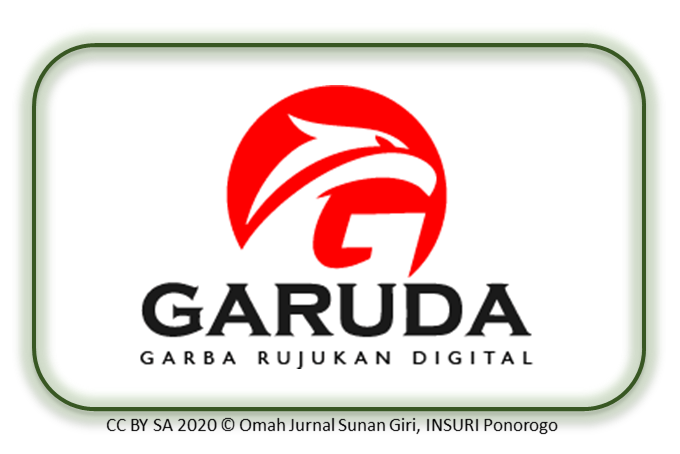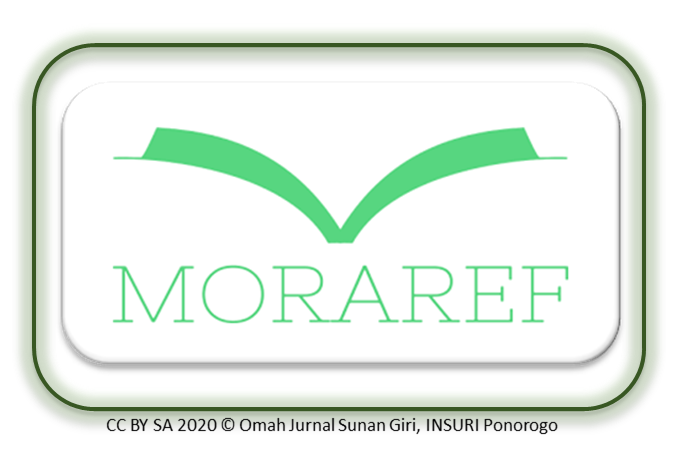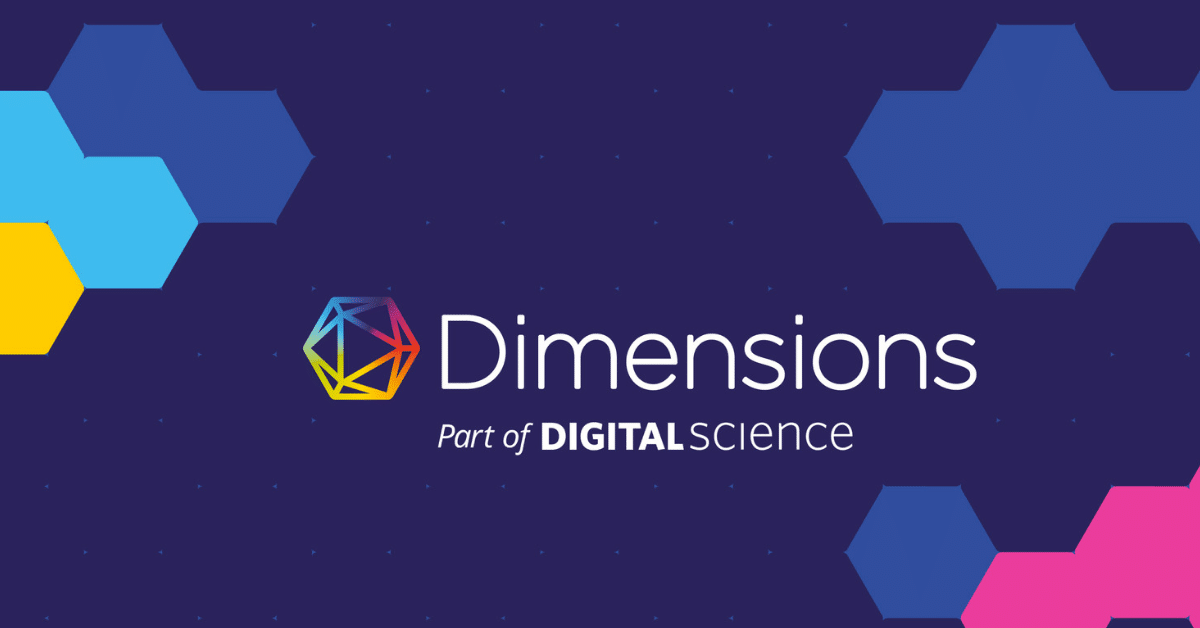Strengthening Islamic Philanthropy for Community Empowerment through Muhammadiyah and Nahdlatul Ulama Initiatives in West Java
Keywords:
Islam, Social Philanthropy, Muhammadiyah, Nahdlatul UlamaAbstract
Many communities are still trapped in poverty, with limited access to resources and economic opportunities. Certain community groups, especially in remote areas, often do not have equal access to education, health, and public services. The problems of poverty and social welfare today can be overcome through Islamic philanthropy which includes zakat, infaq, and sedekah. This study aims to analyze the role of Islamic philanthropy in community empowerment through Muhammadiyah and Nahdlatul Ulama institutions in West Java. This study uses a qualitative approach with a case study method. Data are sourced from articles and journals discussing Islamic philanthropy, including case studies relevant to the West Java context. The results show that Muhammadiyah and Nahdlatul Ulama (NU) play an important role in social philanthropy in Indonesia, each with an approach that focuses on health, education, and community empowerment. Both organizations have a significant impact on community empowerment, with their contributions including poverty alleviation, increasing access to education, and improving health conditions. Challenges and limitations in Muhammadiyah and NU philanthropic efforts include the lack of efficiency in fund management, low community participation, and difficulty in reaching vulnerable groups. In addition, both organizations often face challenges in terms of coordination and collaboration between institutions, which can hinder their philanthropic impact. It is hoped that further research can improve the impact of Islamic philanthropy on society.
References
Al Fachrozi, R. D. (2021). Praktik Sosial Filantropi Islam Untuk Pemberdayaan Masyarakat Dalam Program Kampung Sedekah (Studi Kasus Yayasan Sedekah Ngider Indonesia). Program Studi Sosiologi Fakultas Ilmu Sosial Dan Ilmu Politik Universitas …. https://repository.uinjkt.ac.id/dspace/handle/123456789/61283
Albarri, A. H. (2023). Optimalisasi Program Advokasi Sosial Filantropi Islam dalam Mencapai Pilar Pembangunan Sosial SDGs. IAIN Ponorogo. https://etheses.iainponorogo.ac.id/25799/
Apriliyani, S., & Malik, Z. A. (2021). Peran lembaga amil zakat, infaq dan shadaqah muhammadiyah (lazismu) banjarnegara dalam meningkatkan perekonomian kaum dhuafa. Jurnal Riset Ekonomi Syariah, 7–12. https://journal.staidk.ac.id/index.php/aliflam/article/download/647/430/2310
Ascarya, A. (2022). The role of Islamic social finance during Covid-19 pandemic in Indonesia’s economic recovery. International Journal of Islamic and Middle Eastern Finance and Management, 15(2), 386–405. https://doi.org/10.1108/IMEFM-07-2020-0351
Ascarya, S. R., & Tanjung, H. (2018). Designing Holistic Financial Inclusion Based On Maqāṣid Al-Sharī ‘Ah. Islamic Finance, 248, 1004–1007. https://publication-bi.org/repec/idn/wpaper/WP062015.pdf
Asili, A. (2017). Manajemen Strategi Filantrofi Islam Di Palembang Dengan Pendekatan Appreciate Inquiry. I-ECONOMICS: A Research Journal on Islamic Economics, 3(2), 248–265. https://doi.org/10.19109/ieconomics.v3i2.1689
Efendi, M. N., & Khomairoh, S. (2024). Philanthropy in The Creative Economy Sector: Challenges and Opportunities. Al-Madinah: Journal of Islamic Civilization, 1(1), 61–78. https://doi.org/10.70901/2k9mea05
Harrow, J., & Jung, T. (2016). Philanthropy and community development: the vital signs of community foundation? Community Development Journal, 51(1), 132–152. https://doi.org/10.1093/cdj/bsv056
Hooley, T., Sultana, R. G., & Thomsen, R. (2017). The neoliberal challenge to career guidance: Mobilising research, policy and practice around social justice. In Career guidance for social justice (pp. 1–27). Routledge.
Irele, A. O. (2019). The evolution of social welfare and social work in Nigeria. LWATI: A Journal of Contemporary Research, 16(4), 64–85. https://www.ajol.info/index.php/lwati/article/view/192055
Ismail, H. (2019). Perilaku Donasi dan Potensi Filantropi Warga Nahdlatul Ulama (Survei Lazisnu di 15 Kota dan Kabupaten di Indonesia). Jurnal Middle East and Islamic Studies, 6(1), 1–16. http://meis.ui.ac.id/index.php/meis/article/view/75/0
Kaulika, S. M. (2023). Urgensi Filantropi Islam Untuk Pembiayaan Pendidikan Alternatif Bagi Anak-Anak Yang Tidak Mampu. Re-JIEM (Research Journal of Islamic Education Management), 6(1), 58–73. https://doi.org/10.19105/re-jiem.v6i1.8720
Khan, S., Hwang, G., Azeem Abbas, M., & Rehman, A. (2019). Mitigating the urban–rural educational gap in developing countries through mobile technology‐supported learning. British Journal of Educational Technology, 50(2), 735–749. https://bera-journals.onlinelibrary.wiley.com/doi/abs/10.1111/bjet.12692
Makmun, M., & Sadat, M. A. (2019). Implementasi Program Penyaluran NU-Care LAZISNU Jombang Terhadap Pemberdayaan Masyarakat. Jurnal Hukum Keluarga Islam, 4(2), 166–185. https://journal.unipdu.ac.id/index.php/jhki/article/view/1909
Mujtaba, A. (2024). Economic Development and Social Welfare: Assessing the Relationship. Physical Education, Health and Social Sciences, 2(4), 1–10. https://journal-of-social-education.org/index.php/Jorunal/article/view/25
Purnawan, S. O., Rizky, M., Arista, S. W., Masyita, S., & Murdaningsih, S. R. (2024). Peranan Muhammadiyah Melalui Amal Usaha LAZISMU Dalam Pengembangan Aspek Ekonomi Pasca Pandemi. Jesya (Jurnal Ekonomi Dan Ekonomi Syariah), 7(1), 511–519. https://doi.org/10.36778/jesya.v7i1.1407
Raharjo, S. T. (2015). Mewujudkan Pembangunan Kesejahteraan Sosial melalui Keteladanan Nasional dan Keluarga. Share: Social Work Journal, 5(2). https://doi.org/10.24198/share.v5i2.13137
Rahmadani, R., Raharjo, S. T., & Resnawaty, R. (2018). Fungsi corporate social responsibility (CSR) dalam pengembangan dan pemberdayaan masyarakat. Share: Social Work Journal, 8(2), 203–210. https://doi.org/10.24198/share.v8i2.20081
Rahmida, S., & Ridwan, M. (2023). Analisis Pengelolaan Ziswaf Untuk Meningkatkan Kesejahteran Masyarakat Dibidang Ekonomi: Studi Kasus Ybm Pln Uid Wilayah Sumatera Utara. Transformasi: Journal of Economics and Business Management, 2(4), 157–165. https://scholar.archive.org/work/qxzjycc6gnhshgmj5aqxqr564y/access/wayback/https://jurnal2.untagsmg.ac.id/index.php/Transformasi/article/download/1155/1038
Sholikhah, N. A. (2021). Peran lembaga filantropi untuk kesejahteraan masyarakat global (Studi kasus pada Aksi Cepat Tanggap Madiun). Journal of Islamic Philanthropy and Disaster (JOIPAD), 1(1), 27–42. https://doi.org/10.21154/joipad.v1i1.3051
Tamim, I. H. (2016). Filantropi dan pembangunan. Jurnal Community Development, 1(1), 121–136. https://journal.iainkudus.ac.id/index.php/comdev/article/view/2578
Turnip, I. R. S. (2018). Aktivitas Filantropi Islam Di Kalangan Jama’ah Tabligh Halqah Sipispis Kabupaten Serdang Bedagai Sumatera Utara. http://repository.uinsu.ac.id/3885/
Ubaidillah, A., Buana, M. A. W., & Za, M. A. S. (2021). Optimalisasi Pemberdayaan Masyarakat Di Tengah Pandemi Covid-19 Melalui LAZISNU. BUDIMAS: Jurnal Pengabdian Masyarakat, 3(2), 442–449. https://jurnal.stie-aas.ac.id/index.php/JAIM/article/view/3349
Vallejo, B., & Wehn, U. (2016). Capacity development evaluation: The challenge of the results agenda and measuring return on investment in the global south. World Development, 79, 1–13. https://doi.org/10.1016/j.worlddev.2015.10.044
Williams, T. A., & Shepherd, D. A. (2017). Mixed method social network analysis: Combining inductive concept development, content analysis, and secondary data for quantitative analysis. Organizational Research Methods, 20(2), 268–298. https://journals.sagepub.com/doi/abs/10.1177/1094428115610807
Downloads
Published
Issue
Section
License
Copyright (c) 2024 Willya Achmad

This work is licensed under a Creative Commons Attribution-NonCommercial 4.0 International License.
The author(s) retain/s the copyright and grant/s Muharrik: Jurnal Dakwah dan Sosial the first publication rights licensed under the Creative Commons Attribution-NonCommercial 4.0 International (CC BY-NC 4.0) , which allows others to access (search, read, download and quote), share (copy and redistribute the material in any media or format) and adapt (mix, modify and develop) works for legitimate non-commercial purposes, with recognition of the authorship of the work and its initial publication in this journal.

